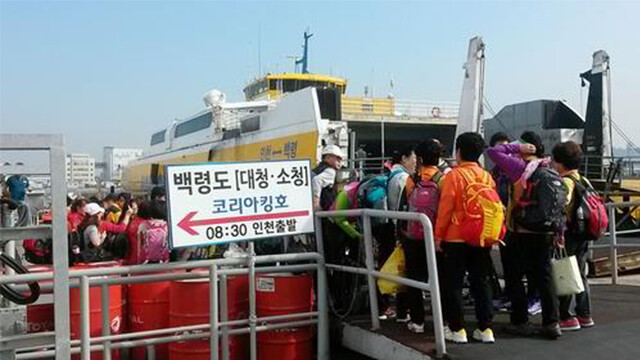
INCHEON – A recent policy to reduce ferry fares has led to a dramatic surge in tourism to Incheon’s islands, with visitor numbers jumping by over 30%. While this influx signals a positive economic trend, it has also sparked significant concerns among local residents and environmental groups regarding the resulting strain on infrastructure and delicate ecosystems.
The Incheon Metropolitan City government's "Sea Pass" policy, which offers ferry fares as low as ₩1,500 for city residents and a 70% discount for non-residents staying overnight, has been a key driver of this growth. According to city data, the number of Incheon citizens using coastal ferries from January to July of this year reached 405,380, a 29.6% increase from the same period last year. Visitors from other regions also soared by approximately 56%, bringing the total increase in ferry passengers to 33%.
However, this tourism boom is not without its drawbacks. Residents of these islands, who rely on ferries for essential travel to the mainland, are now struggling to secure tickets. While ferry operators reserve around 60 seats per vessel for islanders, these can only be purchased in person, creating inconvenience and uncertainty for those trying to plan their travel. A resident of Baeknyeongdo, a popular destination, expressed frustration, noting that online tickets are frequently sold out, especially on weekends or after weather-related cancellations. While they acknowledge that on-site tickets are often available, the uncertainty makes scheduling difficult.
Officials from Ongjin County, which administers many of the islands, acknowledge the residents’ concerns and are considering solutions. They noted that while no resident has been unable to get a ticket so far, they are exploring options to increase ferry services on weekdays during the peak travel months of September and October, a measure currently reserved for weekends and holidays.
Environmental degradation is another major concern. The sudden rise in visitors, particularly to popular destinations like Gulupdo, known for its pristine beauty and a favorite among backpackers, has led to what environmentalists are calling "overtourism." The Incheon Federation for Environmental Movement points to a significant increase in marine debris and other environmental damage compared to the previous year. The organization has called on the city to implement public awareness campaigns to educate tourists on the importance of preserving the natural environment.
As Incheon continues to promote its islands as a key tourism destination, it faces the complex challenge of balancing economic growth with the sustainability of its natural and social resources. The city’s ability to manage these growing pains will be crucial in ensuring that its island communities can thrive for both residents and visitors alike.
[Copyright (c) Global Economic Times. All Rights Reserved.]






























